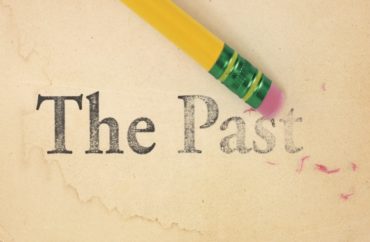
The quality of history education has gone down because of the College Board, scholars argue
“Publishers write their history textbooks so they will be adopted by AP history classes,” David Randall of the National Association of Scholars said at the beginning of a discussion on the College Board’s effect on history education.
The College Board administers the Advanced Placement exams that allow high school students to take competency exams that can earn them college credit.
But the College Board functions as a “Ministry of Truth” that distorts how students learn about history, Randall said, referring to George Orwell’s dystopian novel “1984.”
“The College Board has been doing a bad job with its advanced placement history examinations since the release of its revised U.S. history standards in 2014,” Randall said.
“They all leave out the history of what makes America worth loving,” he said.
The association hosted the discussion on November 18, titled “Becoming a Citizen: The College Board & the Undermining of American History.”
The event introduced a new report from the education reform group titled “Disfigured History,” that “details the careless, politicized history in the College Board’s revisions to the Advanced Placement (AP) European, United States, and World History examinations,” according to a description of the event.
From #TheElective
With a lesson guide for a new collection of oral histories, author and educator Suzanne Methot and the nonprofit Voice of Witness help teachers bring Indigenous issues into their classrooms. https://t.co/pA0qgVeWTb pic.twitter.com/V9ip70nvxz
— College Board (@CollegeBoard) November 17, 2020
Randall, the group’s director of research, wrote the report and presented his findings and recommendations along with a number of other commentators and educational leaders.
Randall spoke at the online event, attended by The College Fix, about how the College Board has been influencing the minds of the American youth, oftentimes even before they step onto a college campus.
Another speaker at the event was Lindsey Burke of the Heritage Foundation. Burke serves as the director of the think tank’s education policy center.
She spoke similarly about the harm that the College Board is doing to the next generation of Americans, noting it has a monopoly on advanced placement history testing.
“These exams really downplay American exceptionalism,” Burke said. The exams also “downplay national identity to instill students instead with a sense of global citizenship.”
Burke proposed a few solutions, including the creation of new history exams by the College Board.
The new exams should take out biased, distorted narratives (such as America starting in 1619 when a ship carrying 20 slaves arrived in Virginia) and replace it with content that is true (America starting in 1776 when the Declaration of Independence was signed).
MORE: AP monopoly at risk as schools create own advanced courses
“If they [the College Board] continue to exercise this virtual monopoly over not only high school history teaching but college history teaching” then there will not be “anyone left to tell us what the history of the United States truly was and is,” Tom Lindsay, an education scholar with the Texas Public Policy Foundation, said during the presentation.
The report warned of the effects of the College Board.
While it “used to aspire to educate a broad mass of Americans to possess solid knowledge and to prize their history and their liberty,” it now “serves a rising caste system,” the report said.
This system “promotes progressive ideology in schools and curries favor with hostile foreign regimes, acts aggressively to forward the interests of the progressive establishment while sacrificing the interests of ordinary Americans,” the report said.
MORE: New AP European History framework ignores religion, snubs Churchill
IMAGE: Shutterstock
Like The College Fix on Facebook / Follow us on Twitter






Please join the conversation about our stories on Facebook, Twitter, Instagram, Reddit, MeWe, Rumble, Gab, Minds and Gettr.